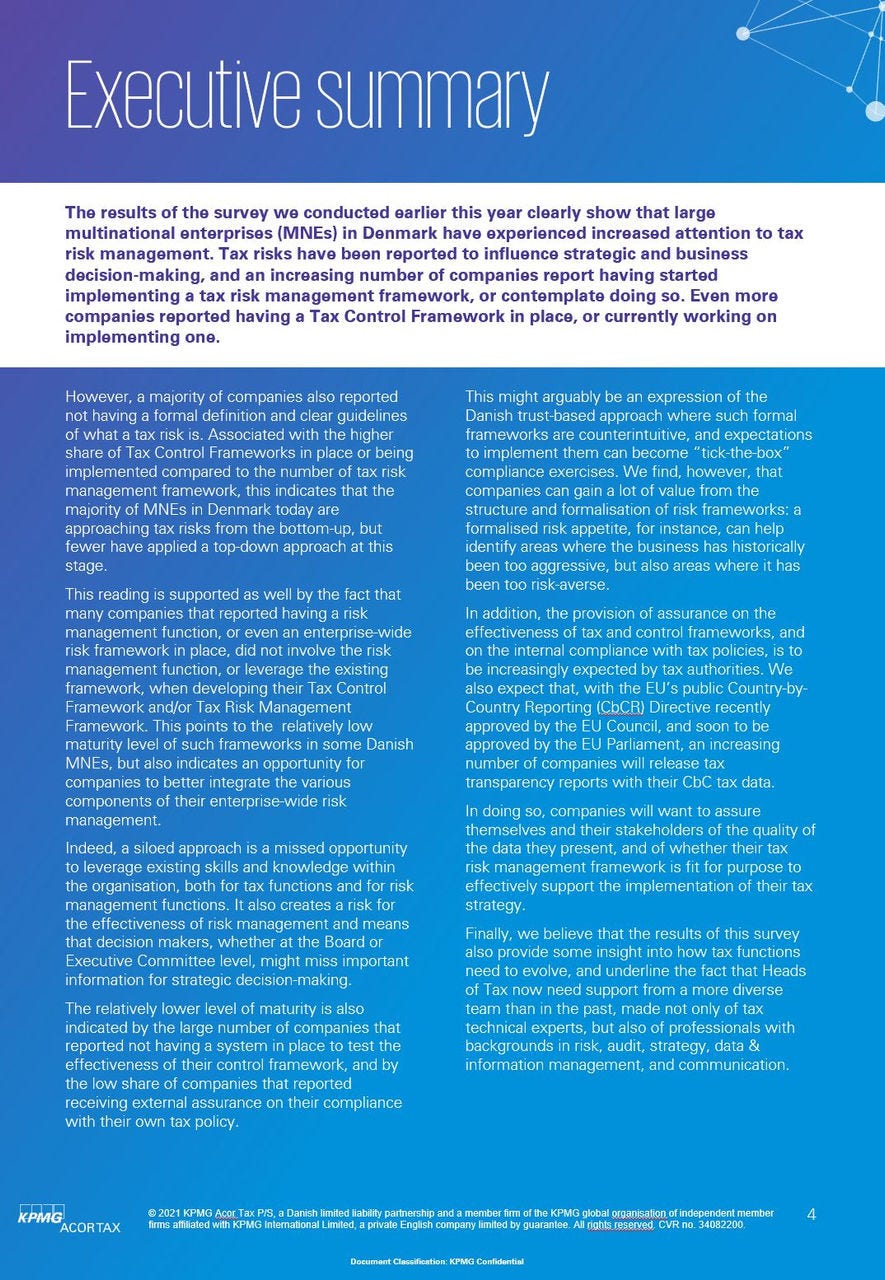We first look at the results about corporate governance & tax management responsibility, looking at approaches to tax risk appetite, strategic tax risks, tax policies, and internal awareness of tax strategies.
Introduction
In the last few years, tax functions have experienced a lot of changes. Boards of directors, whether under pressure from tax authorities, the investor community, or the public discourse, are driving a lot of these changes as they are ultimately accountable for all tax decisions.
First, many companies today are making their tax policy publicly available, and an increasing number are publishing reports on the management of their tax affairs and their contribution to society through the taxes they pay.
Second, and in parallel to these public-facing changes, the tax function’s role is evolving. Where they were once mostly tasked with optimising their companies’ global tax burden and file tax returns on time, they must often now consider how ‘fair’ their approach to tax is; ensure that their transfer pricing model complies with OECD guidelines and reflect where value is actually created; consider the tax consequences and related reputational impact of business decisions; manage their relationship with tax authorities; and overall be a more strategic adviser to senior management and the Board.
To meet these new expectations, tax functions are implementing tax risk management and control frameworks and putting new governance models in place. In order to better understand how these changes are affecting the tax functions of large Danish companies, we launched a survey in early 2021, asking the Heads of Tax of the top 50 Danish companies to take part and share their experience, approach and insights in dealing with tax governance, tax risk management, tax control frameworks, and tax transparency. We received answers from more than half of the companies we reached out to.
The responses to this survey have been aggregated, analysed and used to develop a benchmark, showing not only the current state of play among Denmark’s top 50 multinationals, but also where the conversation is heading. We hope that this report will help companies with their own transformation journey, drive the conversation with internal stakeholders, and trigger new discussions among tax professionals.
The structure of this report:
We then review the answers about tax risk management, focusing on how companies identify, assess, and manage their tax risks, and how common tax risk management frameworks are among the top 50 Danish companies.
Next, diving deeper into tax risk management issues, we look at the prevalence of tax control frameworks and their implementation.
Finally, we look at companies’ approach to tax transparency and corporate reporting.

The information contained in the benchmark report is of a general nature and is not intended to address the circumstances of any particular individual or entity. Although we endeavor to provide accurate and timely information, there can be no guarantee that such information is accurate as of the date it is received or that it will continue to be accurate in the future. No one should act on such information without appropriate professional advice after a thorough examination of the particular situation.
Reach out if you have any questions
Related Content
Something went wrong
Oops!! Something went wrong, please try again
Subscribe to our Tax newsletter
Turn insight and events into opportunity with unique perspectives and actionable insights addressing tax matters. We cover everything from ESG and technologies to new tax legislation and financial services.


